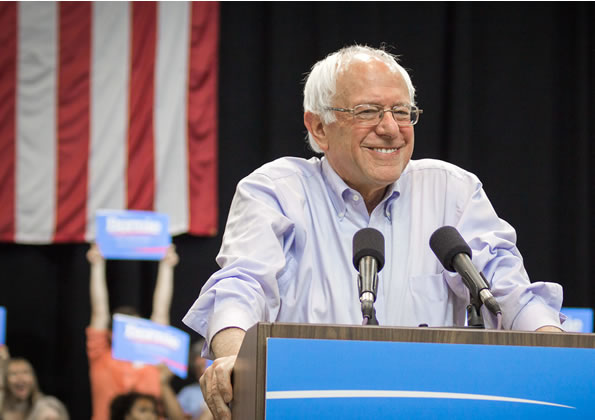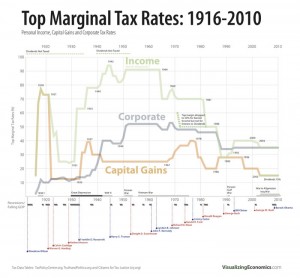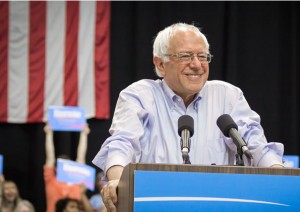
Bernie Sanders is a presidential candidate for the Democratic Party. Currently serving as the junior senator for Vermont, Sander’s political career has spanned over three decades. He states he is a secular Jew that does not subscribe to an organized religion. His political career has coincided with his activism, in particular his support of the Civil Rights Movement.
Personal Life
The seventy-four year old was born and grew up in Brooklyn New York. He attended Brooklyn College for one year, before transferring to the University of Chicago. Graduating in 1964 with a bachelor’s degree in political science. Sanders then returned to New York where he lived until 1968, before moving to Vermont. During this time Sanders, met and married his first wife, Deborah Shiling, the two married in 1964 and divorced in 1966. Sanders then began a relationship with Susan Campbell Mott and had one son together, born in 1969. Sanders ended up marrying Jane O’Meara in 1988, becoming a stepfather to her three children.
Religious Life
Bernie Sander’s father was a first generation immigrant from Poland, moving to the United States in 1927. His mother was born in New York in 1912, with family remaining in Poland and Russia. Both of his parents came from a Jewish upbringing. When he was younger Sanders became interested in politics after learning about the devastation that happened during World War II. With members of his mother’s family remaining in Europe and Russia were killed during the Holocaust. Sanders has said that his family was happy to be Jewish, but rarely attended services.









